Politics
Human society is always surrounded by politics of some sort. Whether it is the basic negotiation of leadership and obedience of rules for clans or soldiers or, the more sophisticated set up of the modern world the relationship of control and decision making is always around. Grouped together in this strand are articles and podcasts covering the systems of the ancient world in Greece and Rome, alongside the stories of revolution in Europe, the creation of treaties and alliances and the arguments amongst political parties today.
Sort by:
Date (Newest first) | Title A-Z
Show:
All |
Articles |
Podcasts |
Multipage Articles
-

Power and Freedom in Britain and Ireland: 1714–2010
30th October 2025Click to view -

Historical anniversaries calendar
ArticleClick to view -

Shaping what matters: Year 9 decide why we should care about the Windrush scandal
ArticleClick to view -
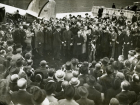
New approaches to teaching the History of Appeasement in the classroom
Multipage ArticleClick to view -

Broadening horizons: using cross-curricular conversations to support historical understanding
ArticleClick to view -

Cunning Plan 190: Using art to make A-level history more accessible
ArticleClick to view -

Helping Year 8 to understand historians’ narrative decision-making
ArticleClick to view -

Short cuts to deep knowledge
ArticleClick to view -
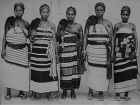
Reimagining the ‘Aba Riots’
ArticleClick to view -

Helping Year 9 to engage effectively with ‘other genocides’
ArticleClick to view -

CARGO Classroom: digital resources for diverse histories
17th March 2021Click to view -

Census 2021: using the census in the history classroom
ArticleClick to view -

Year 9 use sources to explore contemporary meanings and understandings of appeasement
ArticleClick to view -

Why does anyone do anything? Attempts to improve agentive explanations with Year 12
ArticleClick to view -

Unpicking the threads of interpretations
ArticleClick to view -

Film series: Tudor Royal Authority
ArticleClick to view -
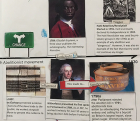
Unravelling the complexity of the causes of British abolition with Year 8
ArticleClick to view -

What’s in a narrative? Unpicking Year 9 narratives of change in Stalin’s Russia
ArticleClick to view -
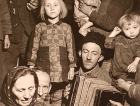
Teaching 20th-Century History Resources
ArticleClick to view -
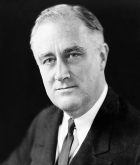
Polychronicon 177: The New Deal in American history
ArticleClick to view

